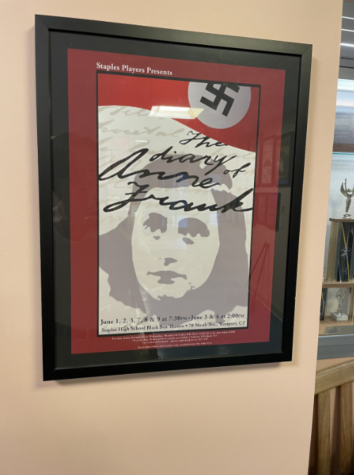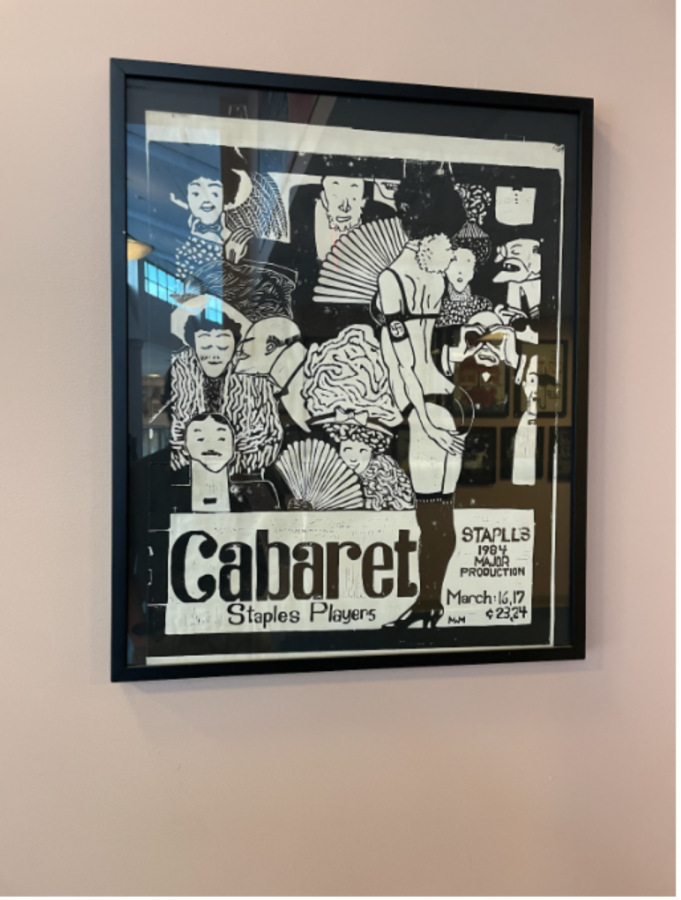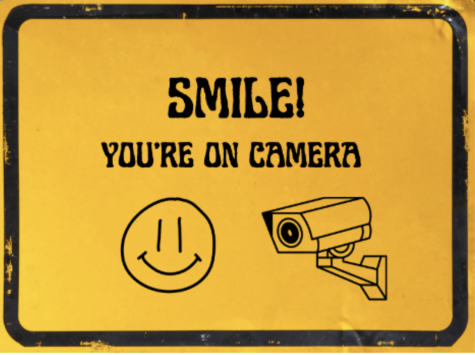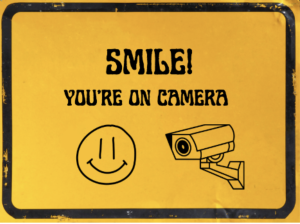Censoring offensive symbols doesn’t change anything
A playbill of the 1984 Players production of “Cabaret.” This play takes place in WWII Germany, which means it obviously contains swastikas. This has become an issue for some because of the symbol’s history.
Staples High School has had a very long history of theatrical performances. If you take a quick look in front of the auditorium, there are many playbills hanging in remembrance of previous performances. However, one particular poster has caught the eye of students who consider it to be controversial. Next to the left staircase, contains a playbill of, “Cabaret.” Set in late 1920’s Berlin,“Cabaret” follows the story of an American writer and a cabaret singer who frequent the Kit Kat Club in Berlin. On the poster, a young cabaret singer is depicted wearing a Nazi armband. People I know have questioned whether this poster should stay up or not due to the hateful history of this symbol, but I believe it should remain on display.
The play is a historical-fiction piece, depicting realistic events during a tumultuous and violent period that actually took place. “Cabaret” is not meant to offend or persecute anyone based on religion or identity. The play does not shine the Nazis in a positive light; it portrays their rise to power as a catastrophe. Instead of trying to hide this dark history, we should acknowledge these events of World War II and treat them as a tragedy.
Censoring the Swastika won’t make it go away, and when it inevitably resurfaces, people will fear it again because they weren’t taught about it
— Matthew Saw ’23 said
A symbol can take on many different meanings, and censoring it would only cause more confusion and intrigue. It sends a message that we still fear it today and that we are allowing ourselves to feel intimidated by it. By acknowledging this symbol exists, it allows us to accept the past and causes the symbol to lose its power. Censoring the Swastika won’t make it go away, and when it inevitably resurfaces, people will fear it again because they weren’t taught about it.
People should not act surprised that a play set during World War II Germany contains Swastikas. Just because there are offensive elements from the past doesn’t mean it needs to be removed. It offers insight to the period they were living in.

In 2006, the players performed “Diary of Anne Frank,” which contained Swastikas as well. Does this mean it should be banned? No, because it is a historical retelling of a Nazi victim. Both of these stories inform viewers about the Nazi’s atrocities; both plays make it clear that the Nazis were bad and that they should be looked down upon.
Instead of choosing to focus our attention on small symbols, maybe start focussing on actual discrimination. No one is being discriminated against because of a Swastika on a playbill. There are more important things to focus on. Reconsider the significance of what you direct your attention towards; is it really worth it?

Web Arts Editor Matthew Saw’s ’23 interest in journalism was initially sparked in the classroom.
“Originally I was just into journalism because...






























































